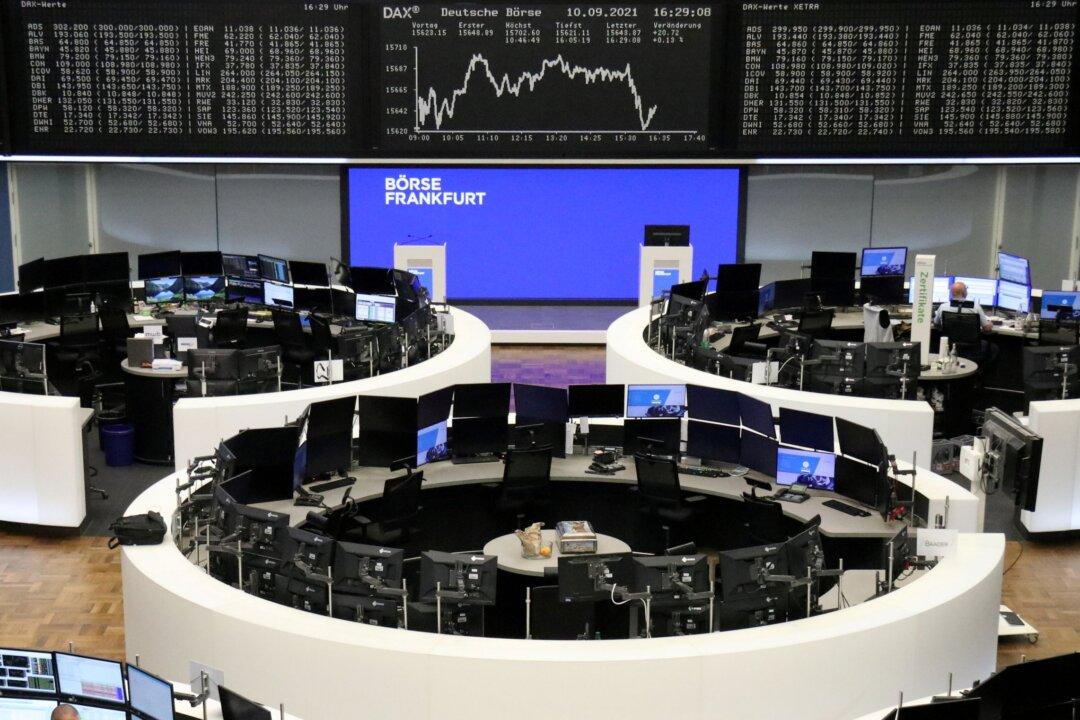European stocks rose on Monday, with oil, banks and utility shares driving gains as investors hoped that a strong euro zone economic recovery would outweigh risks from a global slowdown.
The pan-European STOXX 600 index was up 0.4 percent after hitting a three-week low last week. Asian stocks, however, fell following news of fresh regulatory crackdown on Chinese firms.





